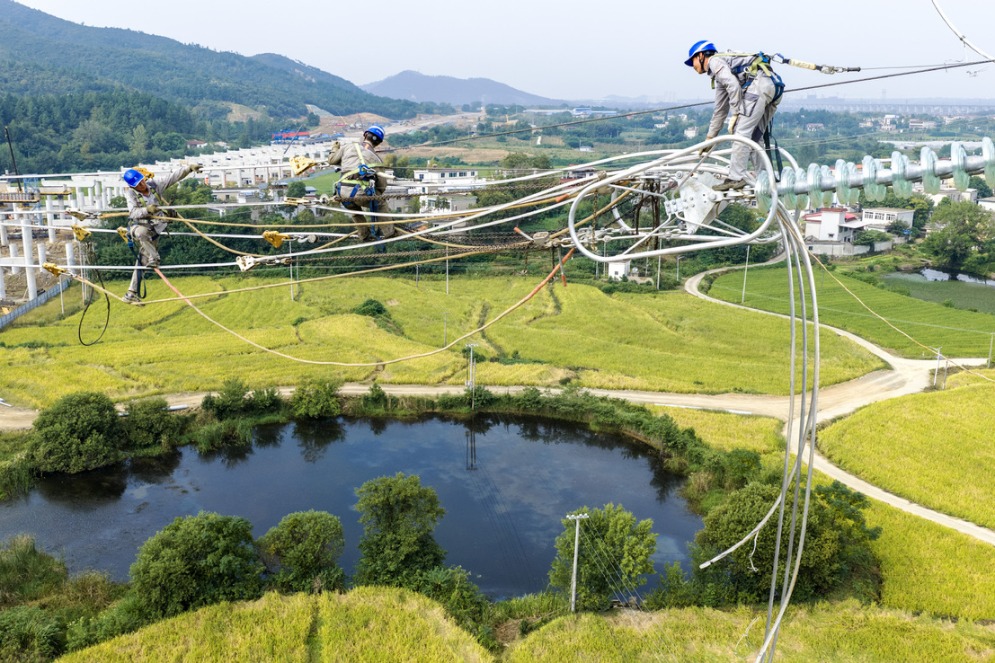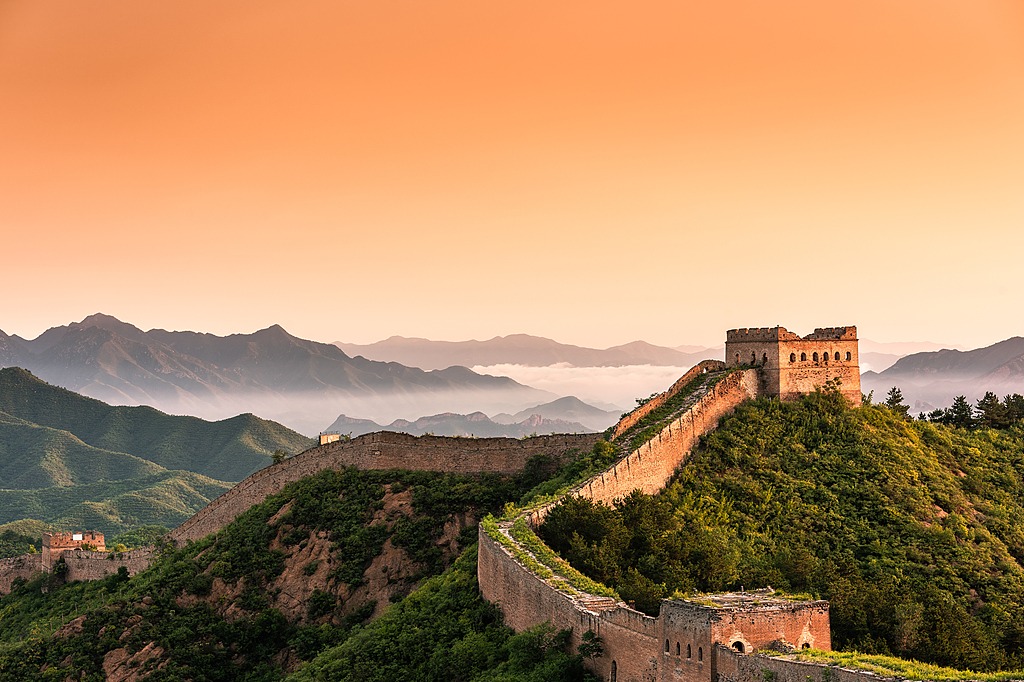China's system contributes beyond nation


China has cultivated a mature and efficient political system through years of effort, with its achievements and contributions acknowledged globally. Despite facing Western criticism such as being labeled "authoritarian", it has achieved remarkable success on almost all fronts. So it is crucial to analyze these viewpoints thoroughly, particularly because of the significant global shifts.
Fairness is one of the strongest pillars of any institutional system. The Chinese political system protects the rights of all people. A prime example of this fairness is China's achievement in eradicating extreme poverty in 2020, lifting nearly 800 million people out of poverty and improving the basic living conditions of all the people since the late 1970s. This accomplishment — of ensuring "no one is left behind" — stands as one of the greatest achievements in poverty alleviation, showcasing the political advantages and justice inherent in China's political system.
For example, due to the unique geographical environment of high mountains and deep valleys, the Drung ethnic group used to live in a highly isolated and inaccessible area. In the past, the Dulongjiang township had only two rugged and narrow footpaths leading to the outside world, requiring a trek over snow-capped mountains exceeding 4,000 meters, and a seven-day walk to reach the county of Gongshan. In 2010, the Yunnan provincial government initiated the Dulongjiang township's comprehensive support project to assist the entire Drung ethnic group, with an investment of 250,000 yuan ($34,896) per capita.
In 2018, the entire Drung ethnic group was lifted out of poverty in what could be said to be a "millennium leap". Today, in Dulong River Valley, every village is connected by paved roads and 4G networks, every household has new homes, and every family has new businesses.
As the Chinese leadership says, democracy is a shared value for all mankind. The achievements China has made in developing "whole-process people's democracy" have enriched democratic theory and practice, contributing Chinese wisdom and solutions to the world. China has extensively explored and promoted democracy across various fields, including Party politics, the National People's Congress, the Chinese People's Political Consultative Conference, and grassroots governance.
One key feature of "whole-process people's democracy" is that it is a comprehensive governance system that integrates elections, consultations, decision-making, management and supervision, all intertwined and operating across political and social spheres. In particular, in terms of grassroots governance, this form of democracy is deeply embedded and has significantly improved China's governance system, ensuring that people participate in public affairs.
For instance, as the grassroots legislative contact point established by the Standing Committee of the people's congress of Zhangye city, Gansu province, the Xiaosimiao community integrates legislative public opinion collection with community governance. Leveraging the "Friday discussion" mechanism, the community has established a discussion-action approach. Addressing issues such as parking difficulties raised by residents, multiple parties including local people's congress representatives, legal professionals, and resident representatives engage in negotiations to facilitate the implementation of projects such as smart charging station installations and renovations of old residential areas.
China's rich tradition of peace is an essential aspect of its institutional framework. Traditional Chinese concepts such as "harmony in diversity" and "peaceful cooperation" are deeply embedded in the country's historical and contemporary governance.
The Five Principles of Peaceful Coexistence, initiated by China and India in 1954, became a cornerstone of China's foreign policy and has been enshrined in its Constitution. Since then, China has adhered to these principles in its international relations, promoting peace and helping resolve global conflicts, including the ongoing Russia-Ukraine conflict, the Israel-Palestine conflict, the denuclearization of the Korea Peninsula and the Iranian nuclear issue, through diplomacy and consultations. A remarkable example of China's peaceful role and a significant milestone in peace diplomacy was its mediation between Saudi Arabia and Iran in 2023, which led to a rapprochement and restoration of diplomatic relations between the two Middle East countries.
Development remains a challenge for most countries across the world. Over the past more than four decades, China has created an unprecedented economic miracle. Between 1978 and 2024, its GDP soared from 367.87 billion yuan ($51.34 billion) to 134.9 trillion yuan, a staggering 366-fold increase. This growth, coupled with a significant rise in the living standards of the Chinese people, shows the effectiveness of China's institutional system in fostering development.
This success is the result of continuous institutional innovation that has unleashed huge development potential. China's contemporary political system represents a convergence of global values, and embodies the future of human development.
The author is a professor at the Party School of the CPC Central Committee.
The views don't necessarily represent those of China Daily.
If you have a specific expertise, or would like to share your thought about our stories, then send us your writings at opinion@chinadaily.com.cn, and comment@chinadaily.com.cn.


































